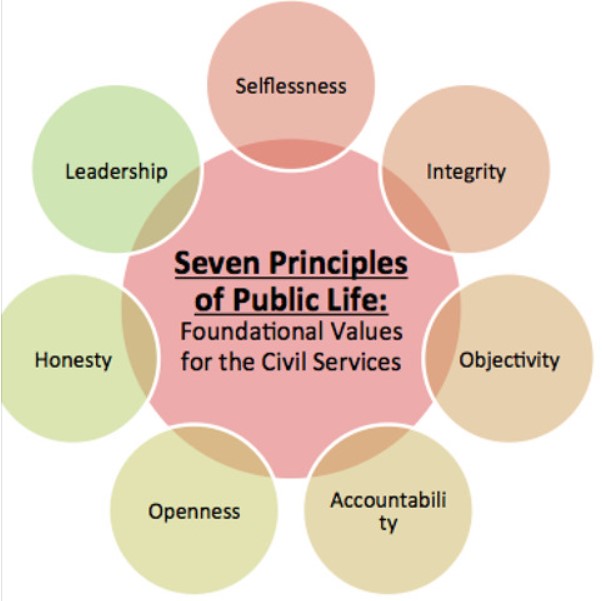-
07 Aug 2023
GS Paper 4
Theoretical Questions
Day 19: How does the ethical behavior of individuals influence the effectiveness of public administration and governance in a country? (250 Words)
- Start your answer by introducing ethical behavior.
- Discuss how does the ethical behavior of individuals influences the effectiveness of public administration and governance in a country.
- Conclude suitably.
Answer:
Ethical behavior is the application of moral principles in a given situation. It means to behave according to the moral standards set by society, which can be influenced by various factors such as personal beliefs, religion, government, or media.
Ethical behavior can be displayed by individuals or entities in both personal and professional relationships. It involves honesty, transparency, integrity, trustworthiness, objectivity, diligence, respect, and accountability.The ethical behavior of individuals influences the effectiveness of public administration and governance in a country in several ways. Some of them are:
- Ethical behavior enhances the legitimacy and credibility of public institutions and officials. When individuals act ethically, they gain the trust and confidence of the public, who perceive them as fair, impartial, and competent. This in turn increases the public’s willingness to cooperate and comply with the policies and regulations of the government.
- Example: Ashok Khemka, Whistleblower who exposed scams and corruption in land deals, mining, and public distribution systems and unearthed a scam in Haryana Seed Development Corporation, involving inflated prices for seeds.
- Ethical behavior promotes the quality and efficiency of public services and outcomes. When individuals act ethically, they avoid corruption, nepotism, favoritism, and other malpractices that undermine the public interest and common good. They also strive to perform their duties with diligence, professionalism, and innovation. This in turn improves the delivery and impact of public services and programs.
- Example: Armstrong Pame: Known as the "Miracle Man" in Manipur. He constructed a 100-km stretch of road without government assistance, bringing connectivity to remote areas.
- Ethical behavior fosters a culture of accountability and responsibility in public organizations. When individuals act ethically, they accept the consequences of their actions and decisions. They also seek feedback and evaluation from their peers, superiors, subordinates, and stakeholders. This in turn encourages learning, improvement, and innovation in public administration and governance.
- Ethical behavior supports the values and principles of democracy and human rights in a country. When individuals act ethically, they respect the dignity, diversity, and rights of all people. They also participate in civic life and contribute to social welfare and development. This in turn strengthens the social cohesion, political stability, and economic prosperity of a country.
Ethical behavior is an essential element for effective public administration and governance in a country. It influences the performance, reputation, and impact of public institutions and officials. It also reflects the moral conscience and aspirations of society. Therefore, it is important to cultivate and promote ethical behavior among individuals who work or interact with the public sector.





